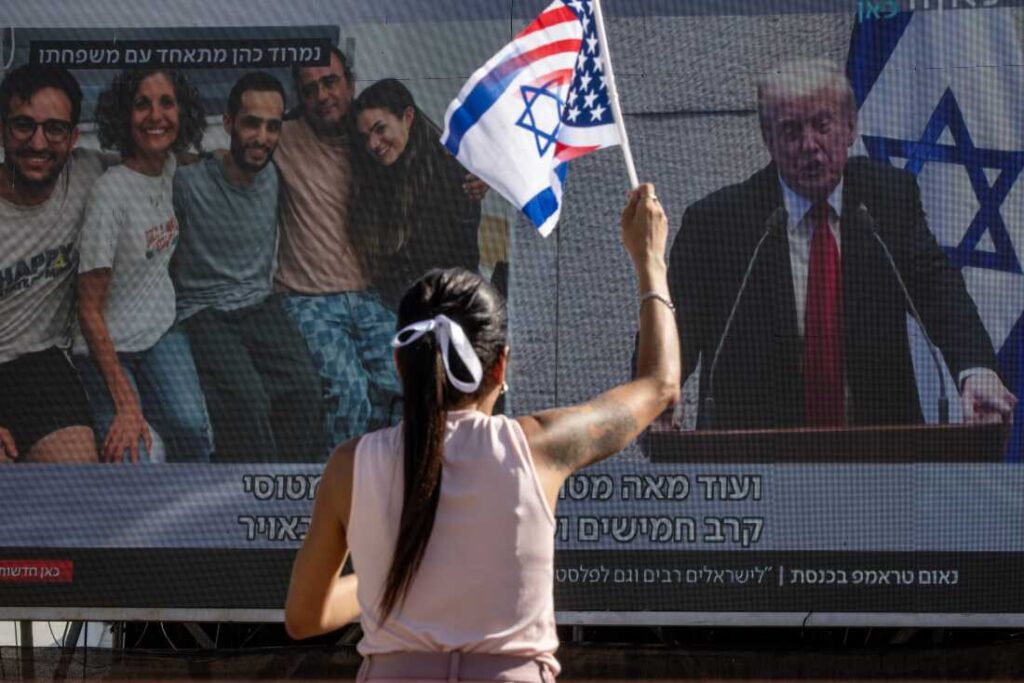
The U.S.-brokered ceasefire between Israel and Hamas that came into effect this past weekend offers a brief and fragile respite. For many Gazans, it is a pause long overdue: families returning to the ruins of neighbourhoods flattened by rockets and bombardment found dust and silence where kitchens, schools, and lives once were. In the silence, Gaza has revealed itself as a vast graveyard. According to Gaza’s Health Ministry, more than 67,000 Palestinians have been killed since the start of Israel’s offensive two years ago, with tens of thousands more wounded or missing beneath rubble.
Israelis, too, are haunted by grief. The October 7, 2023, massacres by Hamas — which left about 1,200 dead and 251 taken hostage — were deliberate acts of terror that tore apart communities and families. The trauma of that day endures in the anguish of families waiting for word about their loved ones and in the pervasive fear of renewed attacks. No one should be forced to live this way.
Yet compassion for Israeli victims cannot excuse a state response that has inflicted catastrophic civilian suffering on Gaza. Israel’s campaign has too often crossed from self-defence into collective punishment. Prolonged siege, deliberate starvation, and indiscriminate bombardment have made Gaza unlivable. Hospitals and schools have been bombed; ambulances have been targeted; civilians have been trapped in zones of death. When a state’s actions kill indiscriminately, that state must be held to the same moral and legal standards as any other actor — militant or otherwise.
This is not mere moral rhetoric. In May 2024, Karim Khan, the chief prosecutor of the International Criminal Court (ICC), applied for arrest warrants for both Prime Minister Benjamin Netanyahu and Defence Minister Yoav Gallant, alongside Hamas leaders Yahya Sinwar and Mohammed Deif, citing “war crimes and crimes against humanity.” The indictments — still under review — marked the first time in history that Israeli leaders were named in such proceedings. This legal action underscores a growing consensus: international law applies equally to all–states and non-state actors.
Political responsibility must also be faced within Israel. Prime Minister Netanyahu’s coalition — one of the most extreme in the country’s history — has pursued policies that many Israelis now reject. A Jerusalem Post–Maariv poll (September 2025) found that 59 percent of Israelis disapprove of Netanyahu’s leadership, while 76 percent say they no longer trust his government. His authority has eroded; his moral credibility is gone. A government that trades the lives of its citizens and justice for survival cannot lead a nation to peace; a government that purchases political survival through the blood of the innocent must be held to account not only by its own people but also by the international community.
There is an ethical absurdity at the heart of how Netanyahu has prosecuted this war. Suppose, as a thought experiment, that one were to bomb an airplane to kill a single terrorist on board, sacrificing every innocent passenger to achieve one objective. Would any moral person call that justice? This unsettling analogy forces us to confront the logic that drove the IDF’s indiscriminate killing of innocent Palestinians in Gaza. The disproportionate response to the crimes of Hamas has created another crime: one committed by a state against a besieged civilian population–a collective punishment enacted upon the innocent.
Instead of hailing this ceasefire or the so-called “20-step plan” as progress, the world must ask: At what cost? Why did Israel and its chief ally, the United States, wait so long to stop this catastrophe? Why did the ceasefire of January not hold? The answer lies in political complicity and moral evasion. Washington supplied the weapons that fueled the war; European governments debated but failed to act decisively. Even now, the European Union has not imposed an arms embargo on Israel, despite sanctioning other states — such as Myanmar, Iran, and Russia — for comparable or lesser violations. Moral consistency demands that allies apply the same standards to Israel that they do to others.
Indeed, the greatest tragedy of contemporary society is that the violence and killing of the innocent by war, protectionism, and injustice and the economies of scale that manufacture death and poverty for so many, are carried out by the so-called rational, liberal and democratic states. When the state of Israel kills innocent people, its actions are often justified as a rational exercise of its right to self-defense. This framing treats that right as absolute, operating outside the constraints of just war principles or international humanitarian law.
Some recoil at comparing a democratic state to a non-state actor like Hamas with its theocratic violent resistance. Yet when a democracy deliberately kills civilians, the moral distinction narrows. The killing of whole populations by Israel is not morally licit simply because it is committed by a state in the name of self-defence. The killings of innocent women and children, and non-combatants by the state of Israel in Gaza are as irrational, vile, and condemnable as Hamas’ attack on innocent Israelis and foreigners on October 7 at the Nova music festival near Re’im. Ethics must constrain the state’s monopoly on legitimate violence; the law of proportionality must govern the right to self-defence.
None of this negates Israel’s right to exist or to defend its citizens. What it challenges is the notion that any nation’s security can be purchased with another people’s extinction. Israel cannot bomb its way to peace; Hamas cannot terrorize its way to justice. Each perpetuates a mirror image of the other’s violence. The world’s silence and hypocrisy have made both sides prisoners of fear, and Palestinians the perpetual casualties of history in this endless cycle of destruction, violence, oppression, anger, hatred, and vengeance.
This tragedy is not new. The roots stretch back more than seven decades — to 1948, when over 700,000 Palestinians were displaced during the Nakba, and to earlier massacres such as Deir Yassin, where Zionist militias killed over 100 villagers. The dispossession and occupation that followed created a wound that affected generations. Hamas and other militant groups, however reprehensible their methods, were born from despair, not ideology alone. Like the Irgun and Lehi paramilitary movements that once fought the British and Palestinians to establish Israel, today’s militants in Palestine, like the Jewish groups before them, believe they fight for liberation. History does not excuse their violence, but it exposes the symmetry of suffering that denial perpetuates. The response to injustice in Palestine is not more violence, but more dialogue, compassion, social repair and a return to internationally recognized borders, and respecting previous agreements.
The way forward must be rooted in justice, accountability, and political courage. The two-state solution — a sovereign Palestinian state alongside a secure Israel — remains the only viable framework for lasting peace. Yet this vision demands action, not slogans. The United States should condition its annual military aid to Israel on verifiable compliance with international humanitarian law. The ICC and the International Court of Justice (ICJ) must continue to pursue investigations unhindered. The EU should consider targeted sanctions against individuals or entities directly involved in war crimes while maintaining humanitarian corridors for civilians. Religious organizations like the Catholic Church must continue to speak out for the voiceless- for millions whose lives are considered expendable due to the extremist politics of the conflict’s principal actors: Hamas and the Netanyahu government.
Palestinians, too, must cultivate governance rooted in democracy and reject violence against civilians. Israelis must elect leaders who can transcend fear and ideology to pursue reconciliation. Both people deserve safety, dignity, and self-determination. The lessons of Afghanistan are clear: occupation and deterrence cannot secure peace. Only a moral and political revolution — one that recognizes the other’s humanity — can break the cycle.
Justice for Palestine does not negate peace for Israel and its neighbours; peace for Israel cannot exist without justice for Palestine. The world must hold both truths together. We owe it to the dead, the displaced, and the living who remain trapped between rubble and ruins to stop this bloodletting; end this carnage; and restore hope, dignity, and humanity to the long-suffering people of Palestine and secure shalom for Israel.




2 comments
Such an excellent article should be on the front page of the New York Times and on CNN!
Such an excellent article should be on the front page of the New York Times and on CNN!